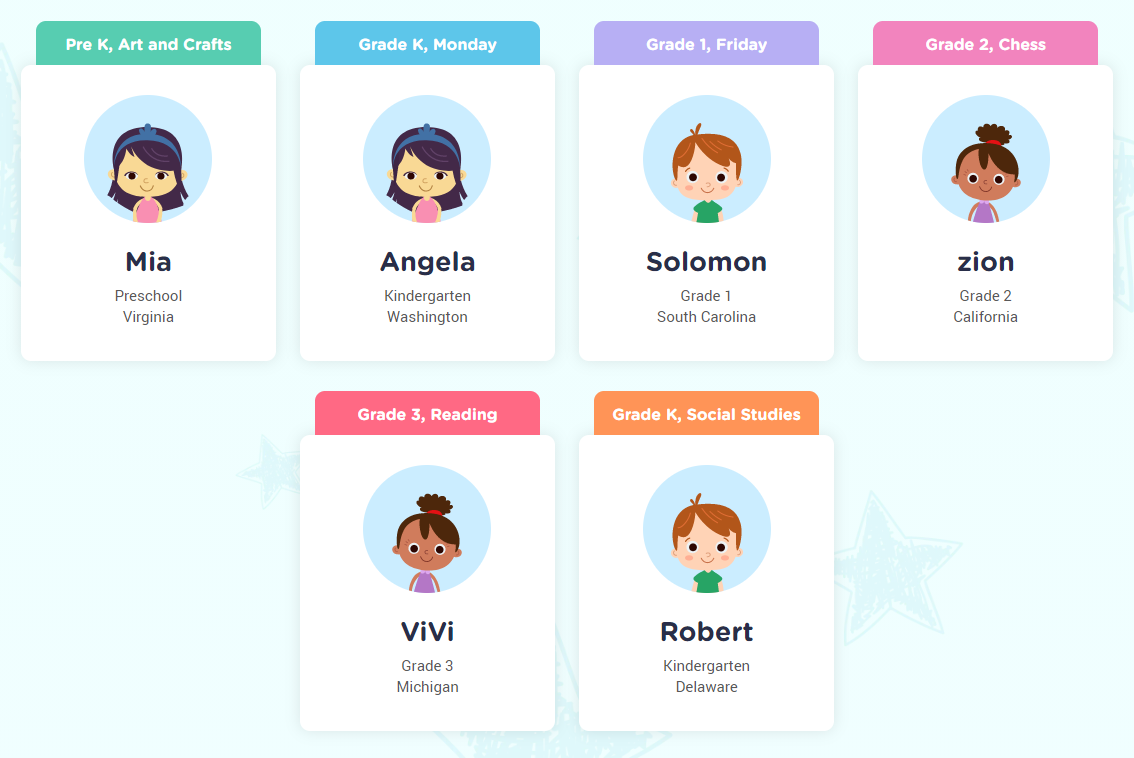Easy Problem Solving worksheets activities for Ages 3-6
4 filtered results
-
From - To
Discover engaging and easy problem-solving worksheets designed specifically for children ages 3-6! Our activities foster logical thinking, creativity, and critical reasoning through fun and interactive tasks. Perfect for early learners, these worksheets encourage kids to explore problem-solving strategies while developing essential cognitive skills. Each activity aligns with developmental milestones, ensuring that your child enjoys productive playtime while enhancing their ability to think independently. Browse our extensive collection to find colorful, age-appropriate worksheets that promote learning through playful challenges. Ideal for parents, educators, or guardians, these resources will empower young thinkers and support their journey towards confident problem-solving!
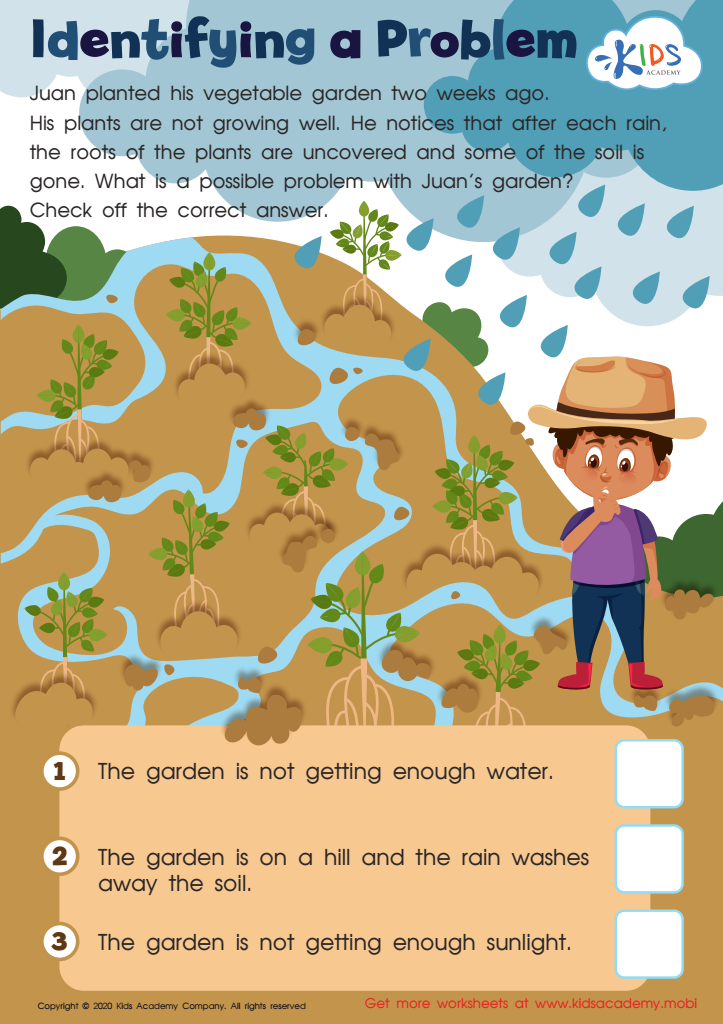

Identifying a Problem Worksheet
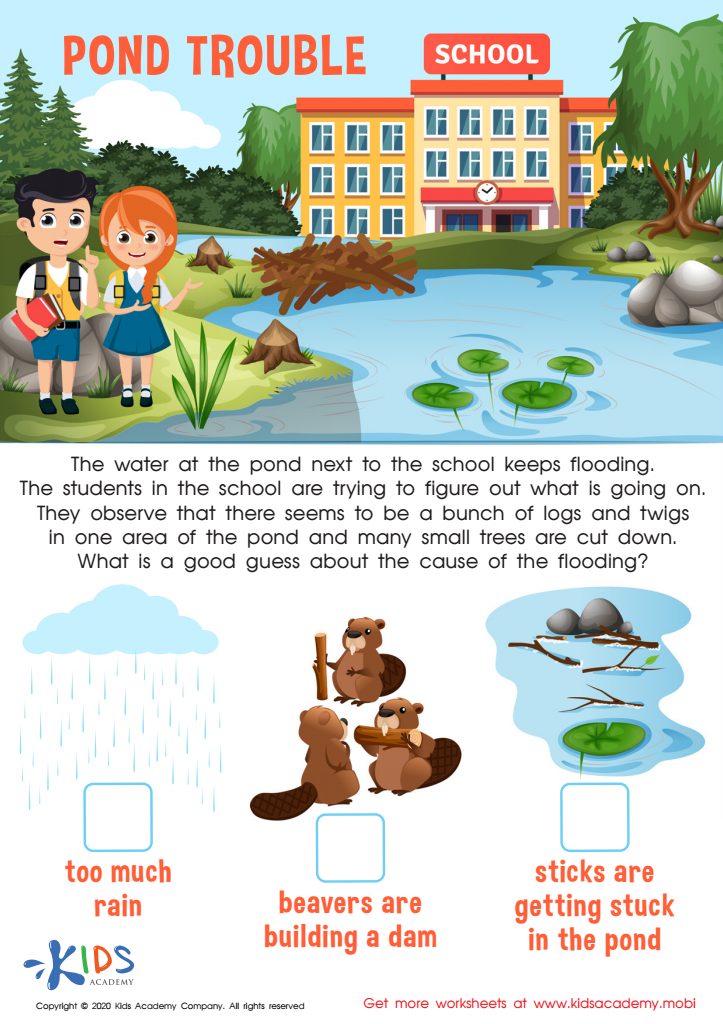

Pond Trouble Worksheet
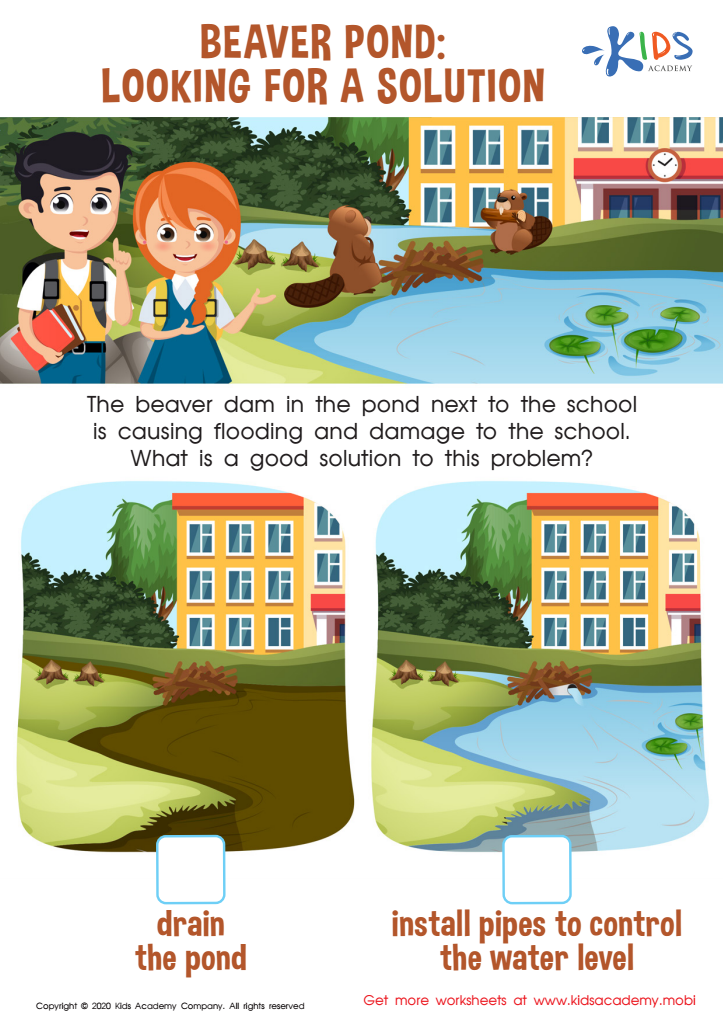

Beaver Pond: Looking for a Solution Worksheet
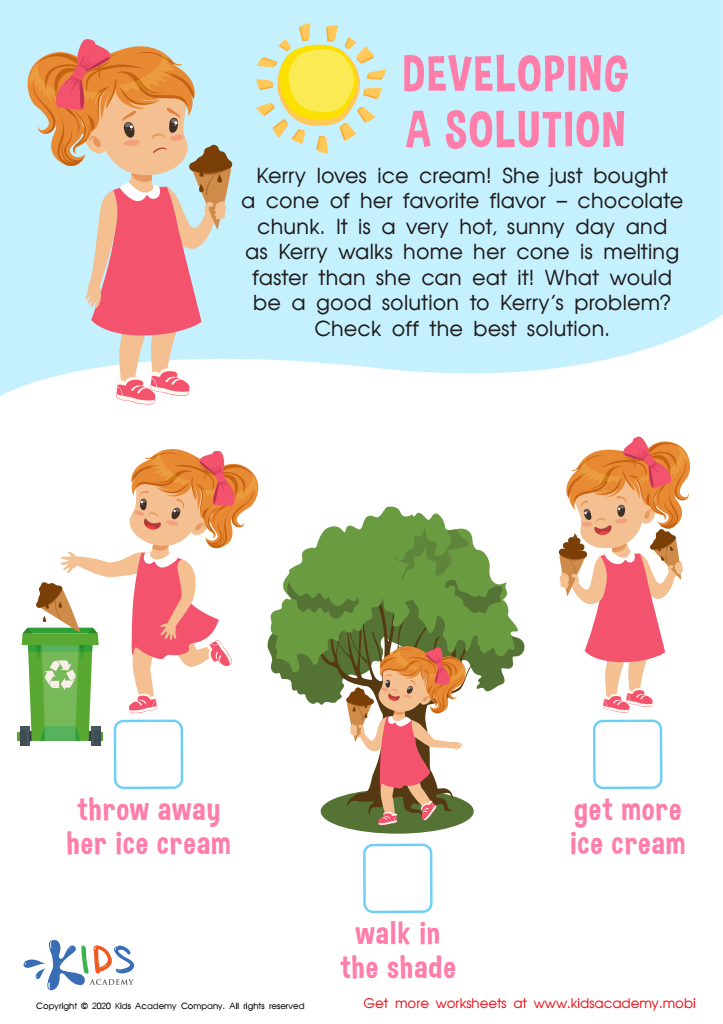

Developing Solution Worksheet
Parents and teachers should care about Easy Problem Solving activities for ages 3-6 because these early years are foundational for children's cognitive development. Engaging in problem-solving activities not only enhances critical thinking skills but also fosters creativity and resilience. At this age, children are naturally curious, and targeted activities encourage them to explore, ask questions, and develop innovative solutions.
These activities can take many forms, such as puzzles, simple logic games, or role-playing scenarios, which are essential for enhancing fine motor skills, concentration, and social interaction. They build confidence as children learn to tackle challenges independently and with peers, emphasizing teamwork and communication.
Moreover, encouraging problem-solving at a young age instills a growth mindset, teaching children that challenges are opportunities for learning rather than insurmountable obstacles. This attitude aids them in future academic and life challenges. Ultimately, by prioritizing Easy Problem Solving activities, parents and teachers contribute to children's overall cognitive and emotional development, paving the way for lifelong learning and adaptability in an ever-changing world. Investing time in these activities can significantly enrich children’s educational experiences, promoting a strong foundation for their formative years.
 Assign to My Students
Assign to My Students





